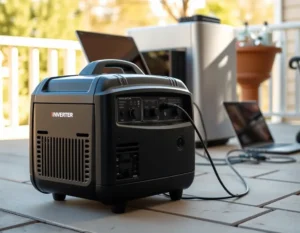
En el mundo moderno, donde la electricidad es fundamental para nuestras actividades diarias, las interrupciones eléctricas son un gran inconveniente, pueden afectar nuestra productividad y
On the market there is an impressive number of energy options to replace a possible interruption in the usual electricity supply: solar panels, generator sets, and, the most commonly used option, electric generators. Which is Ttypes of electric generators and uses are there on the market and what are their uses? Among the latter, the difference in terms of their technical specifications between one and the other is so great, and so many models are offered for so many uses, that it is difficult to make the best decision.
In view of this difficulty, we offer you some guidelines so that you can better guide your decision by virtue of the use to which the electric generator is going to be put. Well, as we know, an electric generator is a machine that converts mechanical energy into usable and reliable electrical energy, and, to do it efficiently and for a long time, it is necessary to know what the energy demand will be that it will have to supply.

Below we will explore the types of electric generators on the market, focusing especially on their technical specifications and the use to which they are commonly intended. Remember that, in any case, you can contact us to receive specialized advice that promptly resolves all your concerns.
As mentioned above, there is an electric generator on the market for every need. They vary in terms of their types of starting, their power, the type of electronic regulator. They vary according to more obvious characteristics, such as their size, whether they are mobile or stationary, or the type of fuel they use. Here we present the main characteristics that must be taken into account.
The type of starting of an electric generator is an indicator of the sophistication and consequent power of the machine in question. Two types are distinguished.
A self-starting electric generator is one that, with a switch, detects energy peaks in the normal current supply (or directly perceives an interruption) and immediately starts the electric generator's motor. In this way, without human intervention, the electric generator starts to work. To switch off, the same thing happens: the switch detects that the current of the main source is restored and automatically switches off the electric generator.
As can be inferred, the type of electric generators that have a manual start will need human intervention to start working. Usually it is a matter of pulling a rope for a few seconds that decompresses the engine so that it starts to work. This type of starting is typical of low-power mobile electric generators that run on gasoline.
Power is a fundamental factor when deciding which electric generator we should acquire. It is a fact that if a generator offers great power, its market price must also be great; and in the same way, if it is worth relatively little, it offers a more moderate power. Thus, a balance point must be found between these two variables: cost – power.
For this, it is important to take into account the use that will be given to the electric generator. An electric generator used for low-demand agricultural work is not the same as an electric generator used for the emergency room of a hospital.
Thus, a mobile gasoline-powered electric generator, of low power, can offer around a few KWs. In addition, it cannot offer electricity for a long time, only for a few hours. On the contrary, a more robust, stationary, diesel-powered electric generator offers a much higher power, of around 60 KWs.
This element is important in the operation of an electric generator, since it determines the way in which the current will be supplied. Two types of regulators are common on the market.
This system, the Automatic Voltage Regulation system for its acronym in English, stabilizes the current output of the electric generator and the voltage variation will not exceed +-3%. Guarantees the proper functioning of machines, electrical appliances and devices connected to the generator.
Generators with this system transform alternating current to direct current and then convert it back to alternating current. Thus, the output electrical current is made safer, since the sinusoidal wave is more stable and resistant to sudden variations.
A mobile electric generator usually runs on gasoline. They are generators that offer relatively low power, ideal for motorized pump work in the field, or for very specific use tools whose consumption does not exceed 8 KWs. They have the advantage of being able to be transported anywhere without major complications.
Despite this designation, a stationary generator can be retrofitted on a specially designed trailer, so it can go almost anywhere to supply power with power starting at 10 KW. Being stationary, these generators are more efficient and more autonomous in their operation.
Electric generators that work from gas turn out to be more friendly to the environment and to the pocket. However, the power they generate is considerably less. On the other hand, in its installation, it is necessary to have a fixed gas line that complies with all the pertinent safety measures.
These types of generators are cheaper at the time of purchase, but not so much at the time of supply and maintenance. They offer relatively acceptable power, although insufficient for high demands. They turn out to be an ideal alternative for camping or undemanding agricultural work, if noise is not a bother.
This type of electric generator is considerably the most powerful and efficient, taking into account the cost-benefit ratio. They offer a much longer working time than the other two alternatives; Similarly, although noisy, they have an overlapping frame and a silencing system that solves the problem.
Nowadays, almost all human activity requires electricity to be carried out. We depend on electrical appliances of power tools or electronic machines. From activities such as academic or banking, to agricultural or industrial or commercial, all depend on a constant and reliable supply of electricity.
Therefore, it is a great idea to have an electric generator that satisfies this need in the most adverse conditions. Of course, we must take into account that the machine that we intend to acquire is the right one and has the capacity to meet the energy demand that we request.
For example, for an activity in the countryside, where it is a matter of irrigating a field with water from a nearby river using a motor pump, a small and modest electric generator, about 8 or 10 KW, gasoline, can perfectly meet this need. . In contrast, if what is sought is to supply electricity to a shopping center or a residential complex, a much more powerful electric generator is needed that, among other things, has an automatic starting system.
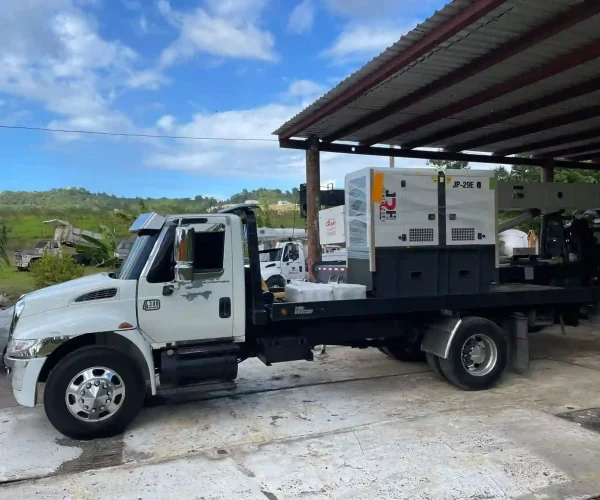

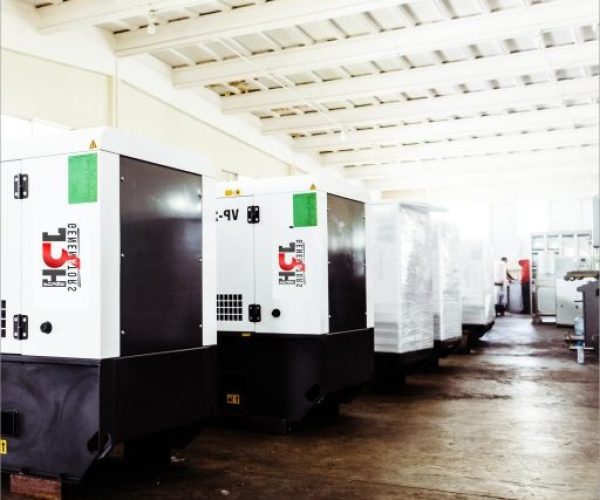

In conclusion, there are a multitude of models available on the market that have very varied features designed to specifically meet certain needs. With what has been said here you can get a rough idea of the generator you need. However, to make a much more informed decision, we recommend taking a look at the technical specifications of our available models or contact us to receive a specialized advice.

En el mundo moderno, donde la electricidad es fundamental para nuestras actividades diarias, las interrupciones eléctricas son un gran inconveniente, pueden afectar nuestra productividad y

Las turbinas eólicas se han convertido en el emblema de la energía renovable, ofreciendo una solución sostenible y limpia frente a los combustibles fósiles. Sin

Cuando se trata de mantener la energía en situaciones de emergencia, durante viajes de campamento o en eventos al aire libre, un generador de 3500
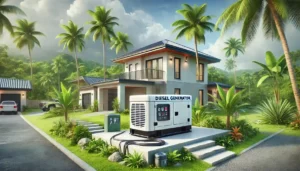
En tiempos de cortes de energía o desastres naturales, saber cómo usar un generador para alimentar una casa puede marcar la diferencia entre estar preparado
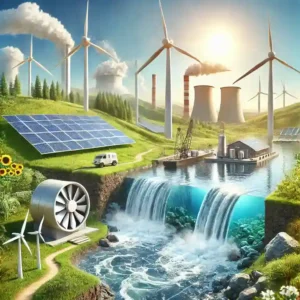
La búsqueda de energías alternativas se ha convertido en un pilar fundamental en la discusión sobre sostenibilidad y el futuro energético del planeta. Pero, ¿cuáles
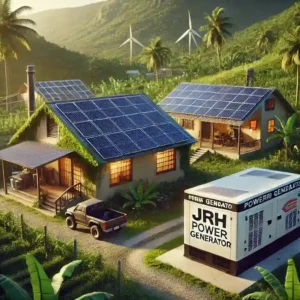
En un mundo donde la demanda de energía eléctrica sigue en aumento, las interrupciones de servicio y el costo creciente de la electricidad han impulsado